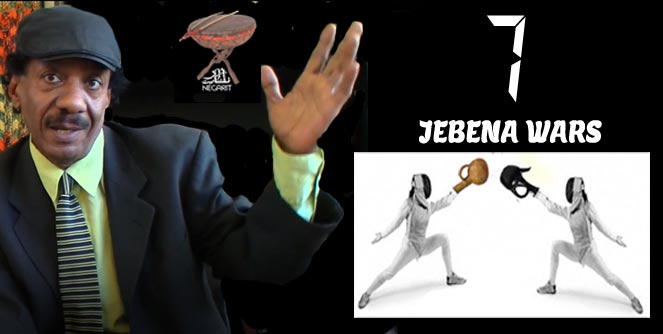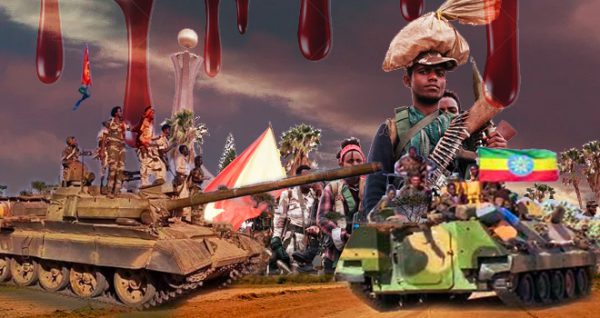The Past & Future: The different Views
 Can Eritreans live together & share a common future?
Can Eritreans live together & share a common future?
The immediate response to that question will be: of course they can, yes they should! You will always find that answer in public, but not behind closed doors! You can read that in the political programs of the government & the opposition, in public statements; you will hear it in general meetings & radio broadcast – but not behind closed doors! There, guided by their social & cultural affiliations, they find many supportive evidences for the opposite answer that says: No, they can’t.
Still there are some voices (though isolated) that shout out loudly: No we cannot live together! They feel that they had been marginalized & left behind, so they say: if we are not part of it, if we don’t have a share of it, then let it (the country) go to hell!? Added to that is the new generation (post independence refugees) who had been mentally abused & their collective memory confiscated.
Eritreans shared the “past” under foreign rule (Italians, British & Ethiopians). Everything had been created & made legal by them (the borders, the Laws, and the admin. & even the name of the country). Presently, the only thing they share is “uncertainty”, be it the regime or the opposition. What about tomorrow? To answer that question let us check a flashback of our recent history that will reveal the following facts:
Fact one: During the era of self determination (1945–1952), external factors played a decisive role, yes, but there had been internal factors (social, cultural & mainly religious) that decided the shape, content & extent of the political polarization of the community. It is true also that both sides of the political spectrum were victims of the ongoing oppression & (slavery) by the colonialists but the difference was the promise given to the Unionist Party. Members of that party were promised that they will be “better off” with their “Mother” Ethiopia … not only economic & political privileges, but most importantly “future security”. The other side (Independence Block) was the loser, that is why it started the armed struggle!
Fact two: During the era of revolution, from the beginning, the culture that dominated & guided the relations of the different components was that of marginalization & elimination of the “other”. The turning point was the military liquidation of ELM (Haraka in 1965). Then that policy continued, & here are some facts:
I. 1965: During the time of the Military zones, Maria & Sahel were marginalized.
II. 1969: The General Command, arrested six of its members; and they were all from Semher.
II. 1971: The first National Congress passed a resolution to liquidate other factions mainly the Osman Sabe & Obel groups.
IV. 1975: The ELF raised the slogan of “one army & one leadership.” Later the EPLF adopted the same slogan & succeeded in implementing it while that of the ELF remained on paper! The outcome was that the EPLF brought forward the old division of the era of self-determination era with all its cultural & social background.
The forces of the revolution forces were divided about the “booty” before they owned it; when they did own a state, they were already categorized as winners & losers!
Fact three: In the Post Independence era, the EPLF changed its “skin & name” into
PFDJ, and the “room & roof” became too small & too low even for the members of EPLF! The state became repulsive because it lost the concept & meaning of “citizenship”. The old slogan of ‘one organization, one army, one leadership’ was applied in its most narrow & exclusionist version. It reads: PIA & PIA only!!
Again, can Eritreans share a common future?
Despite the above pessimistic picture, history does not go only horizontally, but also has its vertical dimension. There are supporting evidences that Eritreans can live together, there are also objective conditions that show they should live together. Here are some facts:
- The many things that bring us together – social and cultural and even ethnic.
- The experience of the Armed Struggle, despite all the conflicts and disputes, was a common experience that every Eritrean should be proud of.
- The referendum carried out for the Independence of Eritrea was a tangible proof that Eritreans want to live together.
- The on-going struggle by all social forces to change the regime and on its place build a new state for all Eritreans.
To succeed in that struggle we have to learn and implement a new vision, and ways of handling our national issues.
We have to take advantage of our diversity and implement the positive values: both religions, Islam and Christianity, call for justice, equality and freedom of individuals. Therefore, religious leaders should advocate and disseminate that message, not the distorted type of the Orthodox church leaders during the era of self determination in support of the Ethiopian ambitions, or the opportunistic approach of the Muslim Mufti in post independence era justifying and defending the crimes of the dictatorship or at best turning a deaf ear to it. The required vision should include:
1- National Unity
It is impossible to find a group of people (nation) with the same interests and objectives – that is why national unity represents a state that touches the bottom line and the ‘roof’ of the junction between the nation and citizenship.
The bottom line is: common destiny – in other words defending the motherland, to have national sovereignty and to run their lives (government) independently. The highest level of that unity means social harmony that supports the bottom line to be stable and continuous. In between those two lines, the middle area is about the political system: social and cultural diversity. In other words, national unity does not undermine diversity.
The question is: Is the national unity of the Eritrean people in danger? The basic conditions that assure national unity are there, but the factors that support that bottom line are getting weaker and weaker. The political system is the one that can endanger national unity; and the vision and policy of the PFDJ destroyed that unity. How?
- Because the PFDJ does not believe in democracy and elective representation.
- Because it doesn’t believe in equality–all ethnic groups were brought together in an accumulative form, putting them one over the other (in layers) and the superior ethnic group (Christian highlanders) was on the top instructing and exercising absolute supremacy.
- The outcome is a distorted, crippled and paralysed ‘national unity’.
2- Equality
Article one of the ‘Universal Declaration of Human Rights’ states: “All human beings are born free and equal in dignity and rights.” In other words each of us is born with an equal moral worth and entitlement to dignity and citizenship. Ethnic and cultural diversity should be seen as indications of the richness of a society, only political ideals endanger equality.
Often political ideas are fine in theory but do not work in practice; with equality it may well be the other way around. In other words, building equality into political practice and institutions gives tangible results:
- It alleviates the suffering of the worst off.
- It increases a sense of citizenship and trust.
- It provides the basis for policies that address issues like public education and health.
- It promotes self-respect and respect for human dignity.
- It is an essential element in reducing poverty–a precondition for genuine implementation of democracy.
Equality is the cornerstone of democracy; it involves the sharing of resources so that all may benefit (land, industry, mineral wealth, environment…. etc.) Redistribution of wealth doesn’t necessarily mean that everyone has precisely the same, rather it ensures that all have equal opportunity, equality of welfare, equal access to services like health, education…etc.
3- Democracy
The conditions and criteria of liberal democracy are known – whatever the difference in shape and form the content and basic concept remains the same. Democracy might not be the ideal solution for all problems; still it is the best (among the worst) that can offer a better prescription. It is the outcome of human experiences, what is needed from Eritreans is to add their experience in the implementation of the concept without changing or distorting the basics:
- Constitutional state – a government governed by law and order – a state of institutions.
- Separation of authorities: Executive – legislative and judiciary.
- Freedom of parties – press – demonstration – expression of ideas – practicing religious and cultural beliefs.
- Free elections to choose representatives of the people and form the government by the majority.
Conclusion
Can Eritreans live together & share a common future?
The answer is, yes they can “if”; and yes they should, “but”!
Those who believe and follow a certain version of the past, will adopt a different vision for the future. That is why it is impossible to share a common future with PFDJ!
God bless Eritrea



Awate Forum